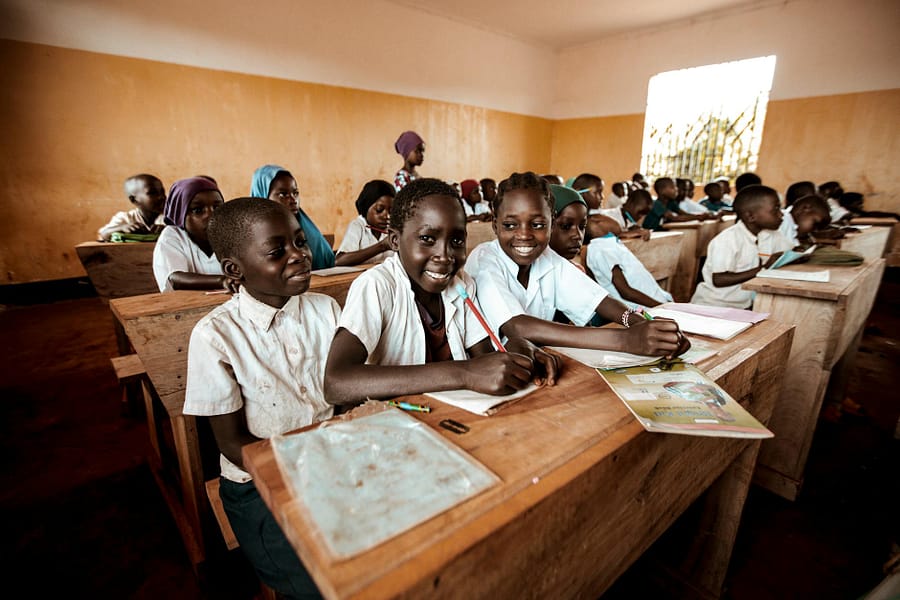Introduction: Colonialism and neocolonialism were not merely historical events consigned to the past; they were deliberate and criminal acts perpetuated through lies, deception, and brute force. From the transatlantic slave trade to the exploitation of natural resources, colonial powers enriched themselves at the expense of African lives and livelihoods, leaving a legacy of devastation that continues to reverberate through the continent to this day. However, the act of decolonizing cannot be passive; it must be deliberate and intentional on the part of Africans. Every step, every decision, must be a conscious effort to dismantle the systems of oppression that continue to shape the present. Accountability must also be woven into the fabric of decolonization; those responsible for perpetuating colonial injustices must be held to account, and systems of accountability must be established to ensure that the mistakes of the past are not repeated.

For Africa to truly be free, it must confront the brutal truth of its past and actively work to dismantle the structures that uphold neocolonialism. Decolonization is not merely a matter of rewriting history books or renaming streets; it is a fundamental reordering of power dynamics, a reclaiming of agency, and a reaffirmation of African dignity and sovereignty. In this passionate exploration, we delve into ten principles for decolonizing education in Africa, charting a path towards liberation, empowerment, and justice for all who call this continent home.
- Redefining Curricula: Decolonizing education begins with redefining curricula to reflect the diverse histories, cultures, and contributions of African societies. No longer should our children be taught through the narrow lens of colonial narratives. Instead, we must embrace the richness of indigenous knowledge, languages, and alternative perspectives that have been marginalized for far too long.
- Embracing Multilingualism: Language is not just a tool of communication; it is a vessel of culture and identity. Embracing multilingual education not only preserves linguistic diversity but also honours the ancestral tongues of our people. Let us ensure that every child has the opportunity to learn in their mother tongue, reclaiming the power of language as a source of pride and empowerment.
- Centering Indigenous Wisdom: Our ancestors were the custodians of profound wisdom passed down through generations. Decolonizing education means centring indigenous knowledge systems and ways of knowing, recognizing the value of traditional ecological knowledge, oral traditions, and indigenous practices in shaping our understanding of the world.
- Empowering Communities: Liberation cannot be imposed from above; it must be cultivated from within. Empowering local communities to have a voice in educational decision-making processes is essential. Let us engage community members, elders, and traditional leaders in co-creating curricula that reflect the aspirations and realities of the people they serve.
- Fostering Critical Consciousness: Critical pedagogy offers a framework for examining power dynamics and promoting social justice within educational settings. Let us cultivate critical consciousness among our students, encouraging them to question dominant narratives, challenge systemic inequalities, and become agents of change in their communities.
- Healing Colonial Wounds: The scars of colonialism run deep, but education can be a tool for healing and reconciliation. Let us create safe and supportive learning environments where students can explore their identities, histories, and experiences in a culturally responsive manner, fostering healing and resilience in the face of intergenerational trauma.
- Resisting Neocolonialism: The struggle for decolonization does not end with independence; it continues in the face of ongoing neocolonial interventions that seek to perpetuate dependency and exploitation. Let us resist the influence of Western educational institutions, standardized testing regimes, and development agendas that prioritize Western knowledge systems over indigenous knowledge.
- Promoting Equity and Inclusion: Decolonizing education is about more than just dismantling colonial structures; it is about building a more just and equitable society for all. Let us prioritize marginalized communities, including girls, rural populations, and indigenous peoples, ensuring that every child has access to quality education and opportunities for learning.
- Building Capacity: Decolonizing education requires building the capacity of educators, policymakers, and other stakeholders to implement decolonial approaches effectively. Let us provide professional development opportunities, resources, and support networks for educators working to decolonize their classrooms and schools.
- Sustaining Dialogue and Reflection: Finally, let us commit to sustaining dialogue and reflection within educational communities about the meaning and implications of decolonization. Let us create spaces for educators, students, parents, and community members to discuss colonial legacies, identify areas for change, and envision alternative futures for education in Africa.
In conclusion, decolonizing education in Africa is not just a matter of curriculum reform; it is a matter of liberation. It is about reclaiming our identities, our languages, our knowledge, and our futures from the shackles of colonialism. It is about empowering our youth to become agents of change, critical thinkers, and custodians of our collective heritage. It is about charting a new course towards a more just, equitable, and decolonized future for all Africans.
